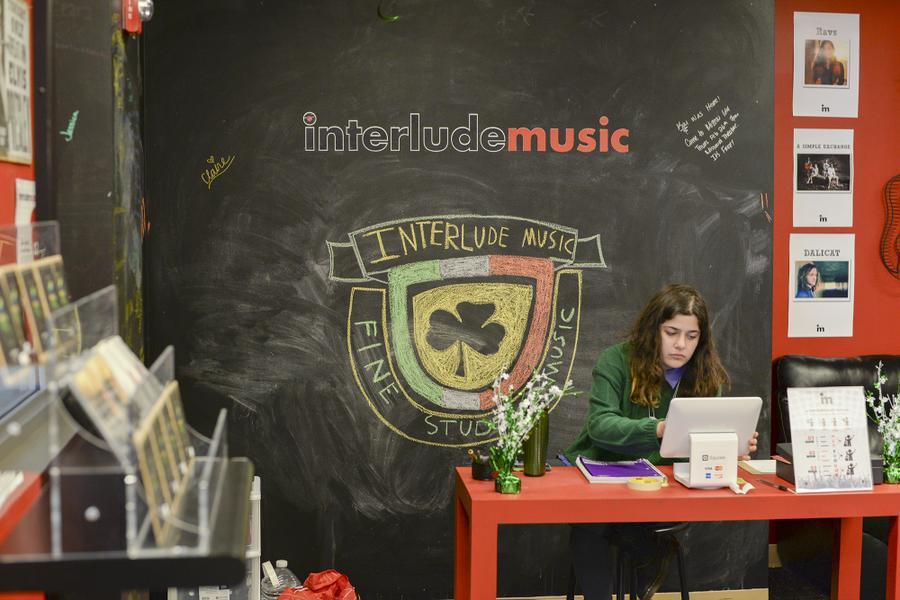The Student Unions Entrepreneurial Program is entering its fifth year providing MU students with real-world experience in business endeavors. Its main outlet is room 12010 in the Student Center — a 325-square-foot space that is currently housing Interlude Music.
Since its inception in 2010, the program has hosted a variety of student businesses, including the still-running MizzMenus, INDIEpendence Boutique and Quirks, a consignment shop that occupied the space last year.
“It was extremely helpful,” Quirks co-founder and co-owner Zach Beattie says about the program. “Quirks was an awesome experience. Definitely the highlight of my college experience.”
According to the program application, SUEP’s goal is to “nurture creativity among MU students while allowing them a high-traffic venue to fulfill their entrepreneurial endeavors.”
Upon acceptance into the program, students are granted a $2,000 startup fund and a blank space that can be used as an office, a shop or just as a headquarters for their business. The only fees that students need to worry about are those concerning their inventory and marketing campaigns.
Beattie refers to the program as a “risk-free business test.” Since students do not have to pay rent or utilities for the space, the risk is relatively low for business failure.
“You won’t get a lot of opportunities in the real world like this,” he says.
The [application](http://www.unions.missouri.edu/pdf/Entrepreneurial_Application_S2015.pdf), due April 1, requires that students submit a business proposal including a business plan, marketing strategies, a management team with a description of everyone’s obligations, a budget summary, a design plan and an exit strategy.
Though it may seem like a lot to prepare, it is nothing a real business wouldn’t have to do.
“We want to make sure students have thought it through. Starting a business isn’t easy,” says Michelle Froese, Student Auxiliary Services spokeswoman.
Froese suggests meeting with a Student Unions faculty member for advice on making a business plan. They can help figure out what might be missing or help students think about things they might have overlooked.
Beattie agrees.
“To get the spot, it’s important to get as many questions answered as you possibly can,” he says, especially those concerning marketing, contracts with clients and possibly paying taxes –– “things most entrepreneurs don’t think about.”
Another solid way to beef up the application and ensure a successful business is to organize a team of people with diverse backgrounds and experience and divide the responsibilities.
Froese thinks that part of Quirks’ success last year was the fact that they had four team members who brought different strengths to the business.
Marketing is also important. Student businesses who work to promote themselves and their products have a good chance at success.
“Make sure that you’re being consistent and communicating with potential customers,” Froese says.
Keeping consistent hours, having open communication opportunities and enticing customers with advertising all help, Froese says.
All it really takes, though, is drive and a solid business idea for students to be seriously considered for the spot.
“We encourage students who have a creative business idea regardless of whether they’re majoring in business,” Froese says.
Megan Monfreda, Interlude Music’s founder and CEO, says the program has helped her in many ways with her marketing and communications major, as well as helping her management team.
“This experience will not only help me with all of my career goals, but it will help my team of 25 people, too,” Monfreda said in an email. “We have all gained valuable skills as far as communication, management, team meetings, projects, public relations and even online (and) social media outlets. We each entered this business with strengths originally, but will walk out of this business with even more experience.”






